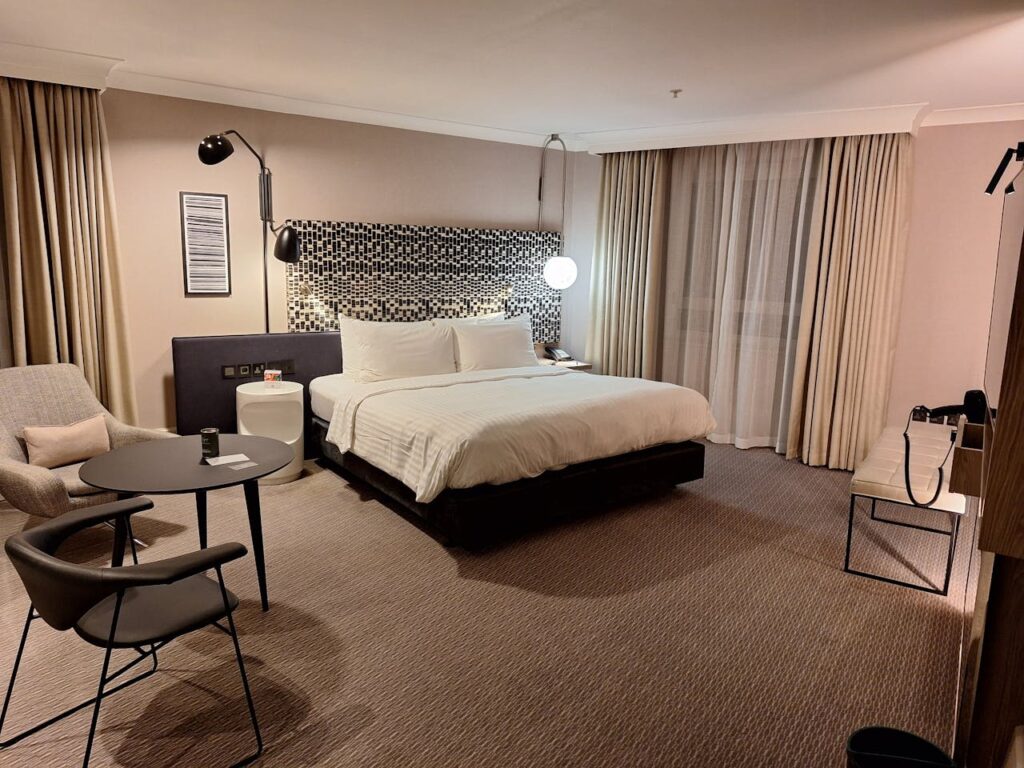7 Powerful Tactics to Handle Difficult Airbnb Guests with Confidence
Table of Contents
Introduction
Hosting on Airbnb can be incredibly rewarding, but it also comes with its fair share of challenges, particularly when dealing with difficult Airbnb guests. Whether it’s unreasonable demands, late-night complaints, or unexpected rule violations, these situations can test even the most experienced hosts. However, handling such guests professionally is crucial to maintaining your reputation, securing positive reviews, and protecting your rental business.
Difficult Airbnb guests can disrupt your peace of mind and impact your hosting experience. But with the right strategies, you can navigate these situations confidently and effectively. By staying calm, setting clear boundaries, and communicating proactively, you can turn potential conflicts into opportunities to showcase your professionalism.
In this guide, we’ll explore seven powerful tactics to help you manage challenging Airbnb guests with ease. From documenting interactions to leveraging Airbnb’s support team, these strategies will empower you to maintain control, ensure guest satisfaction, and safeguard your business. Let’s dive in and transform how you handle difficult situations, ensuring your hosting journey remains smooth and successful.

1. Set Clear Expectations Before Booking
Setting clear expectations before booking is essential for preventing problems with difficult Airbnb guests. This proactive approach helps establish boundaries and ensures guests understand what they’re agreeing to before they arrive.
Your listing description serves as your first line of defense. Be thorough about your property’s features, limitations, and surrounding environment. Mention if your property has stairs but no elevator, is located in a lively area with potential noise, or has specific features that might not suit everyone. Detailed descriptions help attract guests who will genuinely appreciate your space while filtering out those whose expectations wouldn’t be met.
House rules should be comprehensive yet reasonable. Cover crucial aspects like maximum occupancy, quiet hours, smoking policies, pet restrictions, and special instructions for amenities. Present these rules firmly but with a friendly tone that conveys respect rather than suspicion. Remember that most Airbnb guests are respectful travelers simply looking for clear guidance.
Pre-booking messages offer an additional screening opportunity. Ask potential guests about the purpose of their trip and who will be staying. Their responsiveness and the nature of their replies can provide valuable insights into what kind of guests they might be. This initial communication also establishes a rapport that can make addressing any future issues easier.
2. Communicate Effectively and Proactively
Effective communication is the key to managing Airbnb guests and ensuring a smooth hosting experience. Prompt responses show professionalism and help prevent minor concerns from escalating into major disputes. Whether a guest has a question about check-in, amenities, or house rules, responding quickly reassures them and sets a positive tone for their stay.
Using a polite yet firm tone is essential, especially when addressing complaints or unreasonable requests. For example, if a guest asks for an early check-in that isn’t possible, a professional response like, “I’d love to accommodate your request, but unfortunately, the property won’t be ready until the scheduled check-in time. However, I can recommend a nearby café where you can relax until then.” This approach balances hospitality with maintaining necessary boundaries.
Setting clear boundaries while remaining hospitable ensures a stress-free hosting experience. If guests repeatedly break house rules, addressing the issue calmly and professionally is crucial. Instead of being confrontational, politely remind them of the rules they agreed to. If necessary, involve Airbnb support for resolution. By mastering proactive and effective communication, hosts can prevent misunderstandings, maintain control over their property, and ensure a pleasant experience for both themselves and their Airbnb guests.

3. Stay Calm and Professional in Tough Situations
When dealing with difficult Airbnb guests, staying calm and professional is your greatest asset. Emotions can run high, but maintaining composure under pressure helps you think clearly and resolve issues effectively. A composed demeanor not only prevents conflicts from escalating but also demonstrates your professionalism, which can leave a lasting positive impression on Airbnb guests.
Empathy is a powerful tool in de-escalating tense situations. Put yourself in the guest’s shoes and acknowledge their concerns, even if you disagree. Phrases like, “I understand why you’re upset, and I’m here to help,” can diffuse anger and open the door to constructive dialogue.
For example, if a guest is upset about a minor issue like a noisy neighbour, respond with, “I’m sorry for the inconvenience. Let me see how I can address this for you.” If a guest makes unreasonable demands, such as requesting a refund outside your policy, calmly explain your stance while offering alternative solutions: “While I can’t provide a refund, I’d be happy to help you find another resolution.”
By staying calm, empathetic, and solution-focused, you can turn challenging interactions with Airbnb guests into opportunities to showcase your professionalism and commitment to their satisfaction. This approach not only resolves conflicts but also helps protect your reviews and reputation.
4. Handle Rule Breakers with Authority
When Airbnb guests break your established rules, addressing the situation promptly and professionally is crucial to prevent further issues and protect your property. Confrontation can be uncomfortable, but handling rule violations with calm authority ultimately benefits everyone involved.
At the first sign of a problem—whether it’s noise complaints from neighbors, discovering unauthorized guests, or property misuse—reach out to your guests directly through the Airbnb messaging system. This creates a documented record of the conversation. Frame your message as a friendly reminder rather than an accusation: “I noticed there seem to be more than the registered number of guests staying at the property. As mentioned in our house rules, additional guests require approval and an adjustment to your reservation.”
If the violation continues, escalate your tone while remaining professional. Be specific about the rule being broken and the consequences: “Unfortunately, if the unauthorized guests remain, I’ll need to involve Airbnb support as this constitutes a breach of our agreement.” This clarity shows you’re serious without being confrontational.
Contact Airbnb support when guests refuse to comply, when there’s potential damage to your property, or when you feel unsafe. Document everything with photos, videos, or messages from neighbors. Airbnb’s system generally supports hosts who have clear evidence of rule violations and who have attempted reasonable resolution first.

5. Deal with Unreasonable Requests Strategically
Handling guest requests is a crucial part of being a successful host, but not all requests are reasonable. Airbnb guests may sometimes ask for things that go beyond your listing’s offerings, such as extreme early check-ins, last-minute discounts, or additional amenities not included in your price. A reasonable request aligns with your house rules and capabilities, like providing extra towels or adjusting the thermostat. Unreasonable requests, on the other hand, may disrupt your hosting routine or incur additional costs.
When faced with an unreasonable request, negotiation can help find a middle ground. Instead of outright declining, offer alternatives that work for both parties. For example, if a guest requests a late check-out but you need time to clean, you can say, “I wish I could extend your stay, but my cleaner arrives right after check-out. However, I can recommend luggage storage options nearby.” This approach shows flexibility while maintaining your boundaries.
Knowing when to say no is just as important as keeping guests happy. If a request is unrealistic or violates your house rules, politely but firmly decline. Clear communication and professionalism ensure that Airbnb guests respect your policies while still feeling valued.
6. Manage Negative Reviews Smartly
Negative reviews from Airbnb guests can feel disheartening, but how you respond can make all the difference. Always reply professionally and constructively, even if the feedback seems unfair. Acknowledge the issue, apologize if necessary, and highlight steps you’ve taken to address the concern. For example, “I’m sorry your stay didn’t meet expectations. We’ve since fixed the issue and appreciate your feedback.” This shows future guests that you’re proactive and care about their experience.
Encouraging positive feedback is another effective strategy. Politely remind satisfied Airbnb guests to leave a review at the end of their stay. A simple message like, “We’re so glad you enjoyed your stay! If you have a moment, we’d love to hear about your experience,” can go a long way in balancing out occasional negative reviews.
Preventing bad reviews starts with clear communication and exceptional hospitality. Set realistic expectations in your listing, address concerns promptly during the stay, and go the extra mile to make Airbnb guests feel valued. By being proactive and responsive, you can minimize the chances of negative feedback and maintain a stellar reputation on Airbnb.

7. Know When to Escalate the Issue
Despite your best efforts, some situations with difficult Airbnb guests require escalation to higher authorities. Recognizing these critical moments and knowing the proper escalation procedures can protect your property and your hosting reputation.
Contact Airbnb support immediately if guests engage in illegal activities, cause significant property damage, bring unauthorized pets or guests, or create safety concerns. Don’t hesitate to reach out if you experience harassment, threats, or if guests refuse to vacate after their reservation period. These situations go beyond typical guest issues and require intervention from the platform.
Documentation is your strongest ally when escalating problems. Take clear, timestamped photos of any damage or rule violations. Save all communication with guests through the Airbnb messaging system rather than text or email, as these messages are accessible to Airbnb’s support team. If neighbors report disturbances, ask them to provide written statements you can share with Airbnb support.
For situations requiring guest removal, follow Airbnb’s official process. Contact support through the Resolution Center, clearly explaining the violation of house rules or terms of service. Airbnb may attempt mediation first, but with proper documentation, they can cancel the reservation and assist with guest removal. In truly urgent situations involving safety concerns, don’t hesitate to contact local authorities before calling Airbnb support.
Conclusion
Handling difficult Airbnb guests is an inevitable part of hosting, but with the right strategies, hosts can navigate these challenges effectively. Setting clear expectations from the start, communicating professionally, staying calm under pressure, and knowing when to enforce rules or escalate issues are all essential skills. By mastering these techniques, hosts can maintain control over their property while ensuring a positive experience for well-intentioned guests.
It’s important to stay firm yet professional when dealing with unreasonable requests or rule violations. While hospitality is key to a successful Airbnb business, it should never come at the expense of a host’s peace of mind or property integrity. Establishing boundaries while remaining courteous helps prevent conflicts and ensures guests respect the house rules.
Every difficult situation is an opportunity to grow as a host. By handling challenges with confidence and professionalism, Airbnb hosts can build a strong reputation, attract more responsible guests, and ultimately create a thriving short-term rental business. Stay patient, proactive, and assertive—because each experience, even the tough ones, brings valuable lessons that contribute to long-term success in the Airbnb industry.

We hope this deep dive into handling difficult Airbnb guests with confidence has equipped you with practical strategies to enhance your hosting experience. Effectively managing challenging situations not only protects your reputation but also strengthens your ability to maintain positive reviews and secure repeat bookings. By staying calm, setting clear boundaries, and responding professionally to conflicts, you can build trust with Airbnb guests and elevate your hosting game. These tactics not only help you navigate tough moments but also contribute to long-term success, ensuring your listing stands out in the competitive short-term rental market. With these tools, you’re well on your way to creating a seamless and enjoyable experience for every guest.
As the demand for exceptional stays continues to grow, hosts who confidently handle difficult Airbnb guests will stand out as leaders in the hospitality industry. Whether you’re a new host or an experienced one looking to refine your approach, implementing these proven strategies will set you on the path to success. By managing conflicts with professionalism, maintaining clear communication, and prioritizing guest satisfaction, you can create a positive experience for every visitor. Start applying these tactics today, and watch your Airbnb listing thrive as you build a reputation for reliability, trust, and exceptional hospitality.
If you found this guide on handling difficult Airbnb guests helpful, don’t forget to like and share for more expert insights on Airbnb hosting, achieving Superhost status, and strategies to maximize your rental income. Stay tuned for more tips and actionable advice to help you succeed in the competitive short-term rental market. With the right tools and mindset, you can transform challenges into opportunities and take your hosting business to the next level!
We’d love to hear from you! Have you started implementing strategies to handle difficult Airbnb guestswith confidence? Share your thoughts, experiences, and any tips you’ve found helpful in the comments below! Whether you’re just starting out or already on your way to becoming an Airbnb Superhost, your insights could inspire and guide fellow hosts. Let’s build a community of support and success together—drop a comment and join the conversation!
Explore More Tips and Guides
If you’re looking for more hospitality & travel inspiration, check out our other posts:







